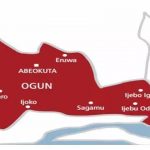The Nigerian economy cannot but give every patriotic Nigerian and those feeling its pangs a great concern. In reality and statistics, the pains, the poverty, the inequality and the insecurity it has wrought on the Nigerian people are not just too grim, but seem at the moment, very rare in the country’s history. If the rates of inflation and unemployment can stand at 17% and 33% (the second highest in the world) respectively and are still climbing and poverty is still widely ravaging, what else do we need to prove that the economy and the people living under it are in a dire strait? The World Bank has also predicted that Nigeria is likely to record the lowest per capita income in 40 years before the end of this year. The ills of poverty, inequality, social insecurity, inflation and unemployment had long been theoretically predicted and proved by Karl Marx as inevitable in every capitalist society of which Nigeria is a pure epitome made possible by colonialism, sustained by neo-colonialism and capped by the capitalist policy of privatisation which Nigeria had pursued years back. Small wonder then that in order to mitigate the current mass sufferings, Bola Ahmed Tinubu, has at this year’s Sardauna Memorial Lecture, advocated stronger and wider state intervention in the Nigerian economy. While this is not Marxism in its pure form, it is one of the plethoras of variants of Marxism, which to ardent Marxist will pass for revisionism and heresy.
In any event, he had at that lecture articulated and submitted as the chairman that, “we must reject that mode of thinking that assumes that government expenditure is intrinsically unproductive as well as harmful to the economy. It is not the fact that government expenditure is intrinsically wrong any more than one can say all private sector activity is economically positive. Government can be wasteful or it can be the key component to growth just as a private sector business can function profitably or spend itself into bankruptcy.” He argued further,” cost of governance is always a key factor in the socio-economic development of any nation. But it is also one side of an important coin. We must not look at the cost alone. We must weigh the cost against the benefits derived therefrom.” The development of any populous nation he said, “has always been dependent on the ability of the government to allocate sufficient funds to projects and programmes that can create and encourage enduring development and growth”. Further still, he maintained that, “where the private sector is too weak or unable, the government must fill the void. This means government must not be afraid to embark on an activist fiscal policy to create jobs, build infrastructure and develop our industrial as well as continue to improve agriculture”.
The overall sense in all these assertions is that, the adoption of wholesale economic liberalism by our country is inappropriate at this juncture of her national development as it will continue to sentence people into joblessness and penury. The Nigerian situation is much more precarious and thus demand a much more state intervention granted the dependent nature of its economy coupled with the fact that it is majorly driven by sales of primary products, oil being the most dominant. Even the production of some of the primary products particularly agricultural produce, requires subsidy for sustenance and keeping the players’ jobs.
For example, it is often said that fresh graduates should go into agriculture. But the questions often left unanswered are these: where will they be residing when they start? How do they pay rent if they have to rent accommodation? How do they feed daily as it will surely take time before they begin to harvest for sale? How do they pay for labour or equipment if they are to hire either? How do they bear transportation cost? Given these initial challenges and more, it is very obvious that government at all levels need to spend heavily on agriculture to promote growth and employment as enunciated by Tinubu. The sense and success in this can be seen in the creation of farm settlements and ranches by governments of the first republic especially the government of Obafemi Awolowo in Western Region. Such support is equally required for the industrial sector in order to boost growth and increase job opportunities as Tinubu had opined. It has indeed become very obvious that the policy of wholesale privatisation has not been absolutely helpful. Apart from job losses that had attended it, it has also become apparent, as it was feared then, that the country’s private sector is too weak financially and technically to drive the economy. We have today seen these weakness and incompetence demonstrated in the power and energy sub-sectors under which the citizenry has been exposed to undeserved sufferings and exploitation.
The logic in Tinubu’s thesis can even be further located in the state’s fiscal policy activism even at different times in the world’s bastion of economic liberalism, the USA. For example, when Franklin Roosevelt was elected the President of the US in 1932, he evolved a policy he dubbed New Deal to mitigate the negative effects of the prevailing Great Depression then and also forestall future economic failures. The thrusts of the policy consisted in job creation and social insurance. Under this deal, he initiated Works Progress Administration (WPA) and Social Security. The WPA engaged people to build bridges and roads, write books and plays, paint murals and buildings among numerous other socio-economic activities. The social security scheme also took care of disabled people and children in homes without wage earners. Similarly, in the 1960s, President Lyndon Johnson initiated a program he tagged, “Great Society”, which was specially designed to make America great by lifting millions of Americans out of poverty. Backed by the Economic Opportunity Act of 1964, it among others created preschool education programs, training and jobs programs for the young and retraining programs for the jobless.
Examining our country today, there are numerous roads to be constructed, uncountable culverts and bridges to be constructed, and huge swath of environment to be sanitized. But the jobs in these subsectors are left yawning due to government’s hesitation and feeble commitment to drive them. Read correctly, it is this lacuna “Tinubunomics” is trying to draw our attention to. True it is that since the advent of the Fourth Republic, there had been a modicum of social interventions bordering on cash transfer, unemployment benefit, empowerment support and vocational training, however, such interventions have remained thin in effects because of low coverage, economic downturn and corruption.
Also, constituency projects had been awarded in trillions, but according to Independent Corrupt Practices and Related Offences Commission (ICPC) report, a good number of the projects have left much to be desired. Worse still, over-invoicing still reigns in the public sector; and a lot of resources that could have been used for other productive ventures are frittered away in the process of inaugurating public projects. Also, as evidence of waste in the public sector, a lot of the so-called employed workers are actually employed into joblessness as thousands are engaged as political aides without engaging in any productive activities and there are situations where the numbers of teachers employed in some tertiary schools are more than the students they teach! If gotten right, “Tinubunomics” abhors all these aberrations as it decries waste. This is where I perceive a meeting point between Tinubu’s acknowledgement of the possibility of waste in public intervention and the lead speaker, Governor Simon Lalong’s stance that, it is imperative to cut cost of governance, for cut of waste will invariably result in cut in cost of governance. Truly waste and misapplication of resources exist in the government sector, this should not, however, be the sole basis for embracing limited government —— the logic of “Tinubunomics”.
Dr. Adebisi writes from the Federal College of Agriculture, Akure, Ondo State.











